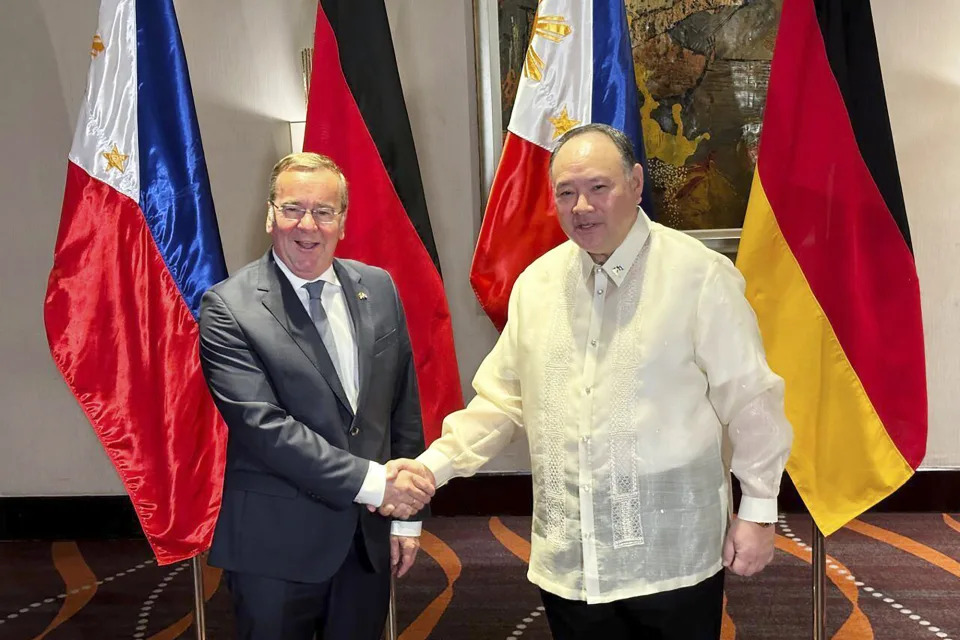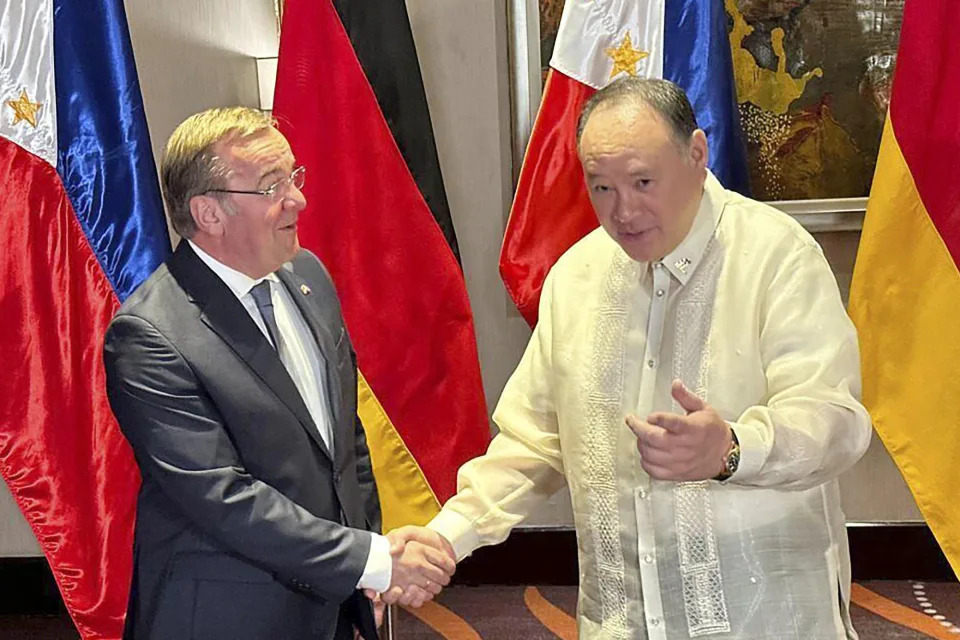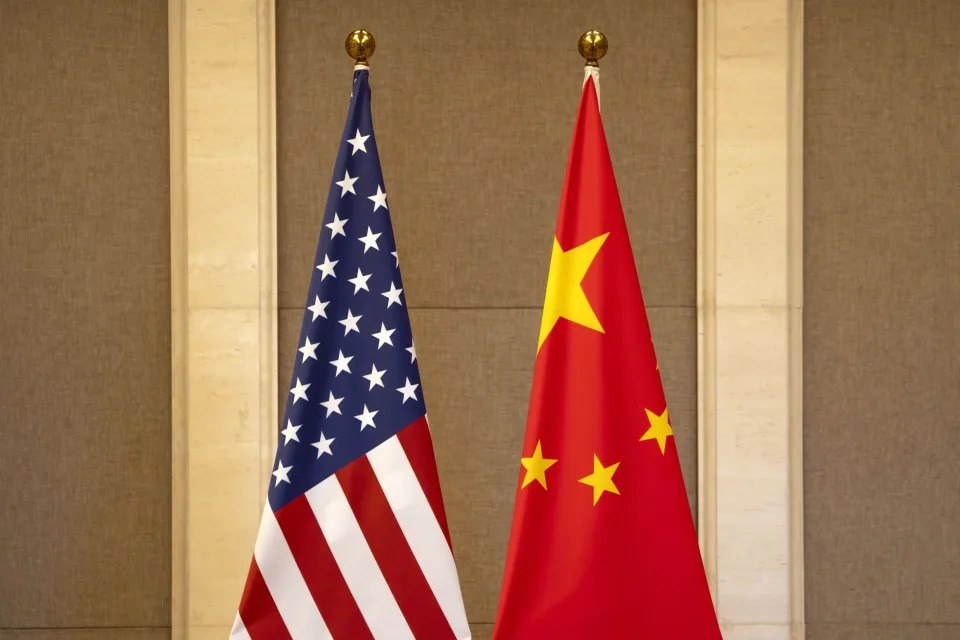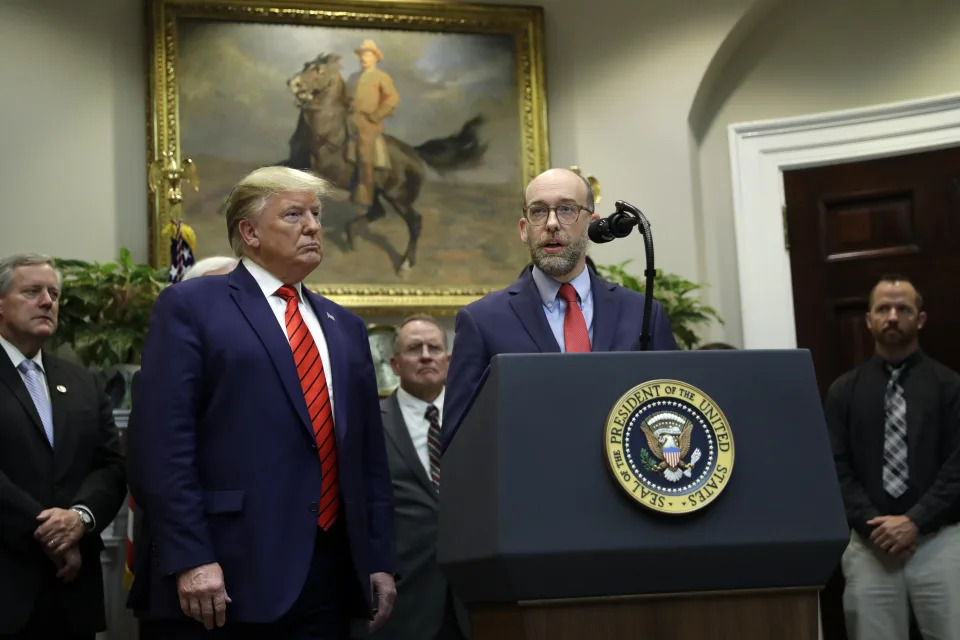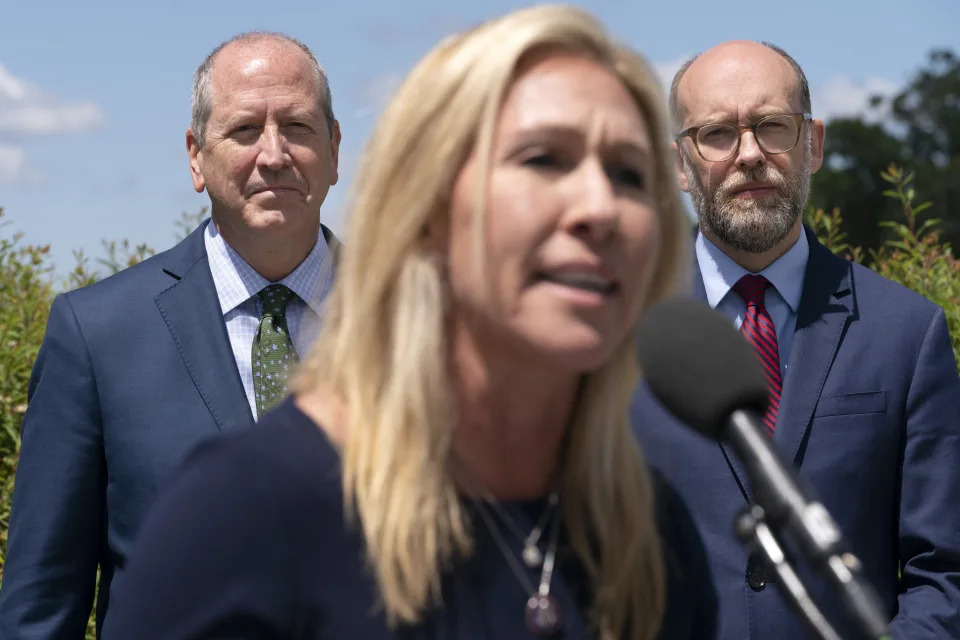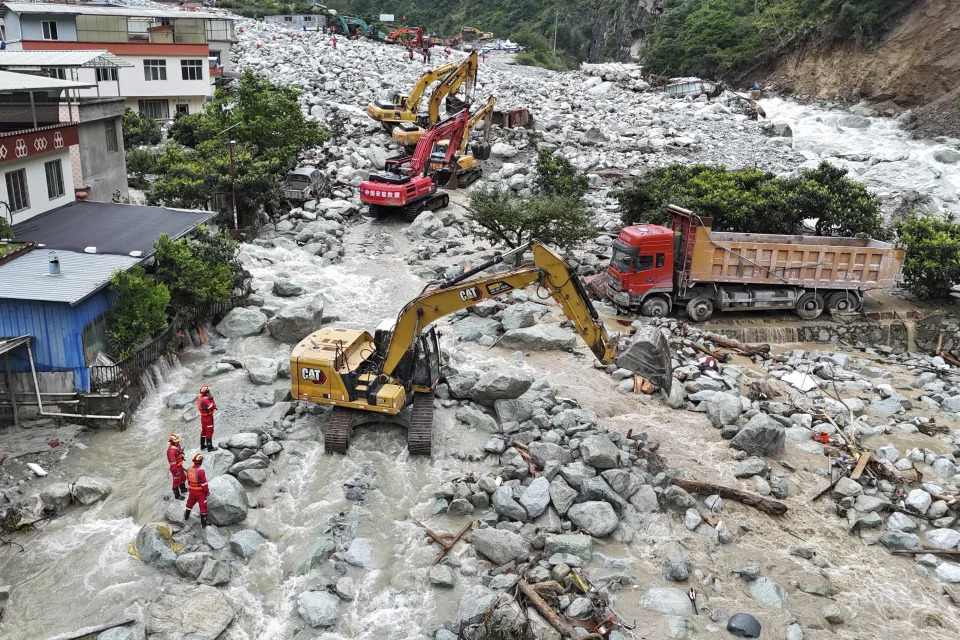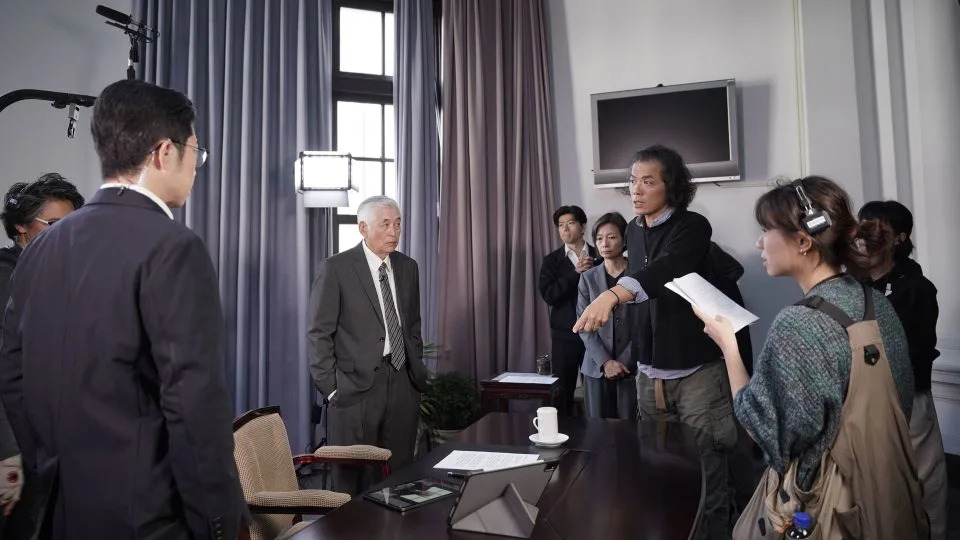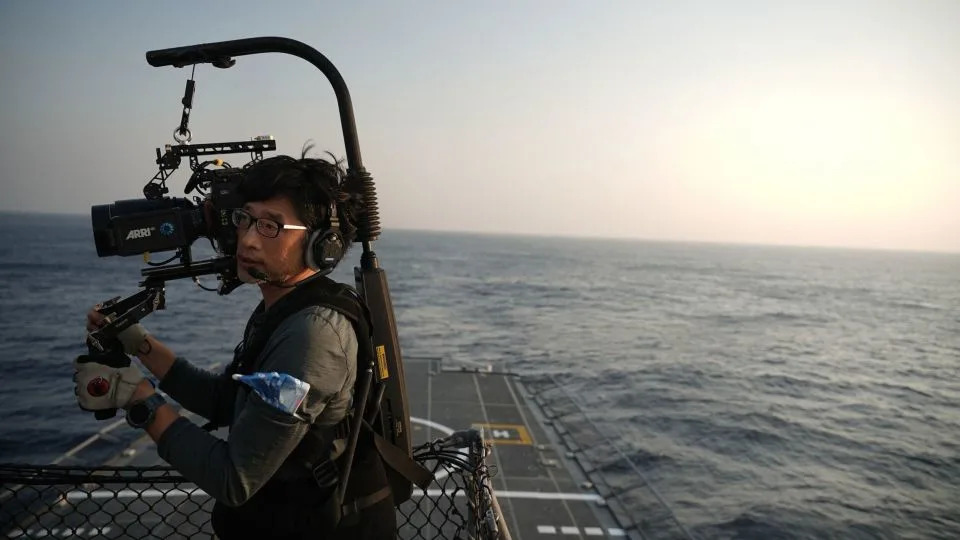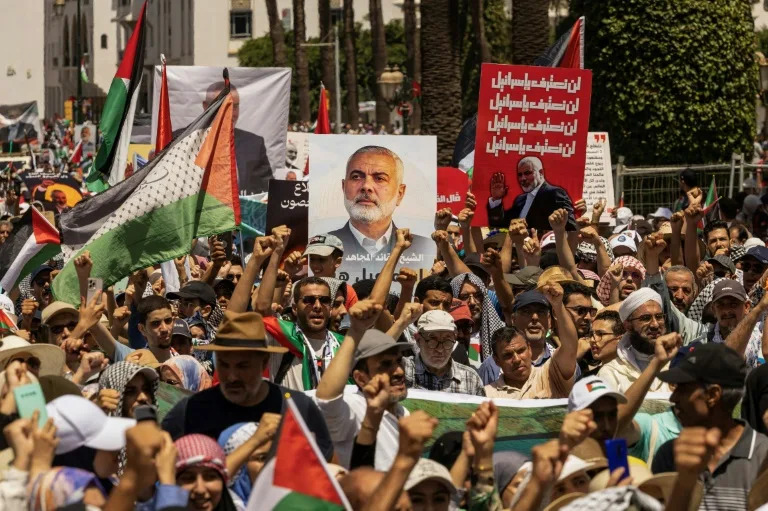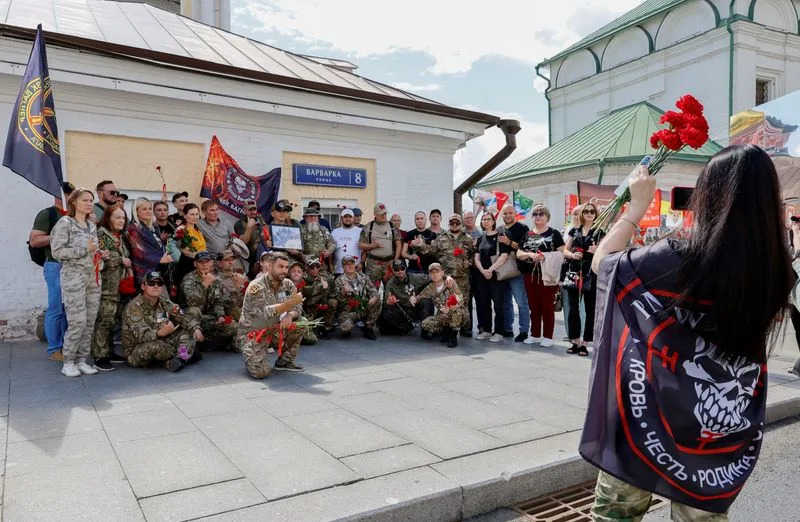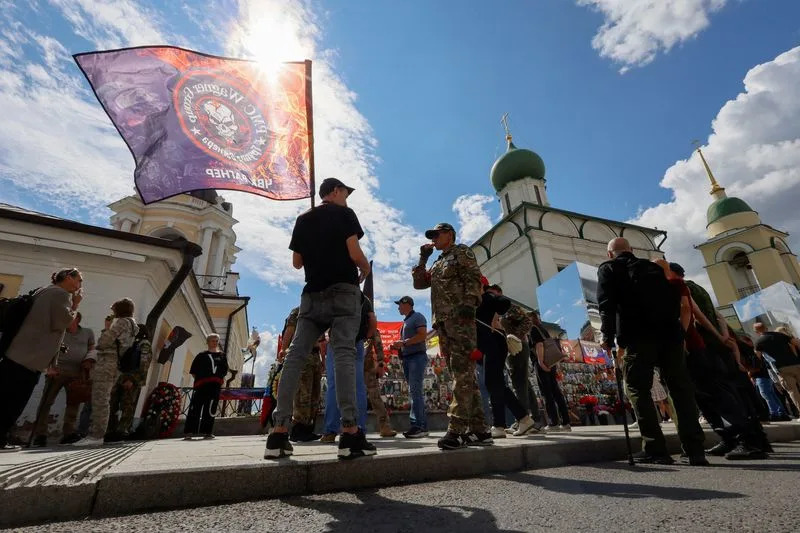WWIII
Vietnam's coast guard visits Philippines for joint drills as both face maritime tensions with ChinaJIM GOMEZ and JOEAL CALUPITAN
Mon, August 5, 2024


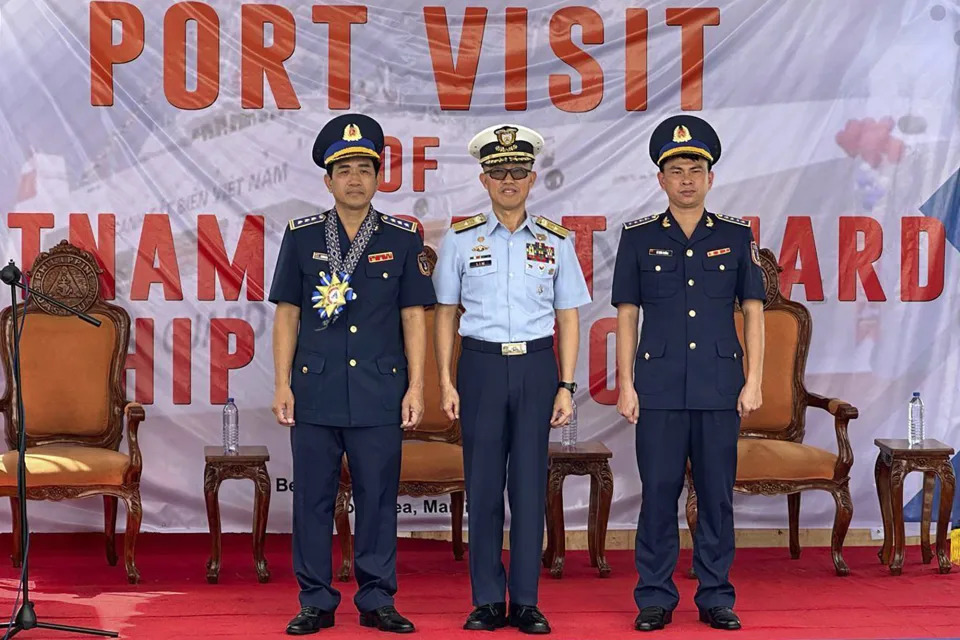
Colonel Hoang Quoc Dat, vice Commander of Vietnam Coast Guard Region 2, from left, Philippine Coast Guard Commodore Arnaldo Lim and Captain Le Xuan Truong, Commanding Officer, Ship 8002, Flotilla 21, Vietnam Coast Guard Region 2, pose for a photo in Manila, Philippines, Monday, Aug. 5, 2024, as a Vietnamese coast guard ship arrives in Manila for a joint exercise with the Philippine coast guard.
(AP Photo/Joeal Calupitan)
MANILA, Philippines (AP) — A Vietnamese coast guard ship arrived in Manila on Monday for a four-day goodwill visit and joint exercises as the two countries attempt to put aside their own territorial disputes in the face of rising tensions with China over control of key features in the South China Sea.
The Philippines and Vietnam are among the most vocal critics of China’s increasingly hostile actions in the disputed waters, a key global trade and security route. The neighboring Southeast Asian countries themselves have overlapping claims in the busy sea passage along with Malaysia, Brunei and Taiwan and the disputes are regarded as an Asian flashpoint and a delicate fault line in the U.S.-China regional rivalry.
As the host's coast guard personnel waved Philippine and Vietnamese flags and a brass band played under the morning sun at Manila’s harbor, a 2,400-ton Vietnamese coast guard ship with 80 crewmembers docked. Some of its officers saluted from the lower and upper decks of the 90-meter white ship.
During its stay in Manila, the two coast guard forces are expected to hold talks and tour each other’s ships. They will hold joint search and rescue drills along with fire and explosion contingency drills in Manila Bay, on the western coast of northern Philippines facing the South China Sea.
“This is a good template, a good way to deescalate the situation,” Philippine coast guard spokesperson Rear Admiral Armand Balilo said. “This shows that even rival claimants can have an opportunity to nurture a relationship.”
Col. Hoang Quoc Dat, who headed the Vietnamese coast guard's delegation, said in a speech that their Manila port call was a way to strengthen the two countries' "cooperative relationship for mutual benefit."
“This will promote and enhance the efficiency of information sharing and the coordination in maritime law enforcement, in accordance with international law,” he said and added such friendly collaboration contributes to "the preservation and protection of the region’s maritime security and safety.”
In a separate goodwill engagement last month, Vietnamese and Philippine navy forces played volleyball, football and tug-of-war games in the Vietnam-occupied Southwest Cay in the South China Sea’s hotly contested Spratly archipelago, according to Vietnamese and Philippine officials.
In June, Vietnam said it was ready to hold talks with the Philippines to settle their overlapping claims to the undersea continental shelf in the South China Sea, while China has long claimed much of the entire seaway and vowed to defend its territorial interests at all costs.
After a violent June 17 confrontation in the Philippine-occupied Second Thomas Shoal in the South China Sea between Chinese forces — armed with knives, axe, and improvised spears — and Filipino navy personnel, China and the Philippines reached a temporary agreement last month to prevent further clashes that could spark a major armed conflict in the atoll.
A week after the deal was forged, Philippine government personnel transported food and other supplies to Manila’s territorial ship outpost at the shoal, which has been closely guarded by the Chinese coast guard and navy ships, no confrontations were reported.
The Philippines, however, has vowed to press on with efforts to strengthen its territorial forces and defense and expand security alliances with Asian and Western countries.
The Philippines and Vietnam are among the most vocal critics of China’s increasingly hostile actions in the disputed waters, a key global trade and security route. The neighboring Southeast Asian countries themselves have overlapping claims in the busy sea passage along with Malaysia, Brunei and Taiwan and the disputes are regarded as an Asian flashpoint and a delicate fault line in the U.S.-China regional rivalry.
As the host's coast guard personnel waved Philippine and Vietnamese flags and a brass band played under the morning sun at Manila’s harbor, a 2,400-ton Vietnamese coast guard ship with 80 crewmembers docked. Some of its officers saluted from the lower and upper decks of the 90-meter white ship.
During its stay in Manila, the two coast guard forces are expected to hold talks and tour each other’s ships. They will hold joint search and rescue drills along with fire and explosion contingency drills in Manila Bay, on the western coast of northern Philippines facing the South China Sea.
“This is a good template, a good way to deescalate the situation,” Philippine coast guard spokesperson Rear Admiral Armand Balilo said. “This shows that even rival claimants can have an opportunity to nurture a relationship.”
Col. Hoang Quoc Dat, who headed the Vietnamese coast guard's delegation, said in a speech that their Manila port call was a way to strengthen the two countries' "cooperative relationship for mutual benefit."
“This will promote and enhance the efficiency of information sharing and the coordination in maritime law enforcement, in accordance with international law,” he said and added such friendly collaboration contributes to "the preservation and protection of the region’s maritime security and safety.”
In a separate goodwill engagement last month, Vietnamese and Philippine navy forces played volleyball, football and tug-of-war games in the Vietnam-occupied Southwest Cay in the South China Sea’s hotly contested Spratly archipelago, according to Vietnamese and Philippine officials.
In June, Vietnam said it was ready to hold talks with the Philippines to settle their overlapping claims to the undersea continental shelf in the South China Sea, while China has long claimed much of the entire seaway and vowed to defend its territorial interests at all costs.
After a violent June 17 confrontation in the Philippine-occupied Second Thomas Shoal in the South China Sea between Chinese forces — armed with knives, axe, and improvised spears — and Filipino navy personnel, China and the Philippines reached a temporary agreement last month to prevent further clashes that could spark a major armed conflict in the atoll.
A week after the deal was forged, Philippine government personnel transported food and other supplies to Manila’s territorial ship outpost at the shoal, which has been closely guarded by the Chinese coast guard and navy ships, no confrontations were reported.
The Philippines, however, has vowed to press on with efforts to strengthen its territorial forces and defense and expand security alliances with Asian and Western countries.
